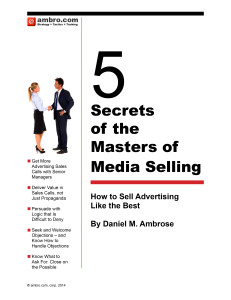Digital Audiences Should be Audited
Years ago I made the statement that because digital media were so accountable, directly to advertisers who could see the impressions and clicks and results, there would be no need for auditing. How wrong I have been.
I should have recognized that as long as there are humans, some would try to cheat. There would be a few really smart cheaters who would game the systems to their advantage. Add to that situation the on-going industrialization of advertising driven by the need to lower buying-costs to satisfy the procurement department mentality at big spending advertisers, and you have a formula for rampant fraud.
Since advertisers and agencies often don’t budget sufficient expense to focus on qualitative issues, publishers have little incentive to deliver quality audiences. This leads to an incentive to build traffic to sell to advertisers at any (moral) cost, keeping the investment in quality low along with the spend-per-new-reader. Publishers turn a blind eye to the sources of their traffic with a Sargent Schultz-like “I know nothing” approach to how traffic driving partners can deliver promised traffic.
As we should know from many other industries, when there is a lot of money available, very creative scams will be hatched. Recently Advertising Age ran this article explaining how more sophisticated scammers have developed technology that avoids bot blockers by appearing to be a human scrolling and interacting with a web page.
Sales Training is Needed to Make Quality Stick
I have written before that it is important for digital advertising sales management to train sales people to explain the value of quality environments and audiences. This training must include enough familiarity with the common ways scammers have developed to cheat the system so that sales people have confidence they can explain how cheating happens.
But more to the point, it’s now clear to me that the problem of bottom feeding publishers and bot-generated traffic and clicks won’t be solved without a commitment to an auditing system that only higher quality publishers will join. The IAB is working on the problem of advertising fraud. But the more I observe the industry the more I conclude that IAB won’t be able to solve the problem, because too many members have too much to lose.
Early in the twentieth century frustrated advertisers and some respected newspaper and magazine publishers got together to form the Audit Bureau of Circulations because they felt they’d be better off if they could separate themselves from the rampant fraud associated with circulation claims. The publishing industry increased its respect and became more investable. Where previously newspapering was considered a slightly disreputable business, soon leading publishers were considered pillars of their communities.
The advent of print media auditing didn’t miraculously take the avid competition out of newspapering or magazine publishing. The Roaring 20’s were still to come and urban newspaper circulation wars were to escalate. But auditing took hold and gave an advantage to the publishers who were doing their best to deliver value to readers and to advertisers. It’s time to find a way to similarly change the paradigm in digital publishing now.

